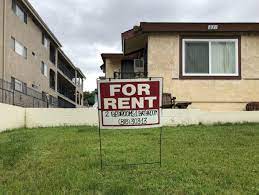South Carolina Rent Increase Laws 2024: Key Facts for Tenants. Tenants may experience considerable stress and financial instability as a result of rent hikes. Renters in South Carolina, where there are no statewide rent control regulations, should be aware of their rights and safeguards in the event that their rent is increased. This article explains South Carolina’s 2024 rent rise legislation and offers advice to renters on how to handle the circumstance.
No Statewide Rent Increase Limits
There is no limitation or limit on how much a landlord can raise rent in South Carolina, in contrast to several other states. This implies that landlords are free to increase rents by any sum they think suitable. Tenants may find this to be a difficult situation, but it’s crucial to comprehend the current legal framework.
Notice Requirements
South Carolina landlords are required to provide renters adequate notice before any rent increase takes effect, even in the absence of regulations on rent increases. The type of lease agreement in effect determines the precise notification requirements:
- Month-to-Month Leases: Before the new rent rate takes effect, landlords are required to give at least seven days’ written notice in the case of month-to-month leases.
- Fixed-Term Leases: The conditions of a fixed-term lease, such as a one-year lease, typically specify when and how rent increases are permitted. The landlord usually has to wait until the lease expires before making any changes to the rent, unless the lease expressly permits mid-term rent hikes.
Specific information like the present rent amount, the new rent amount, and the increase’s effective date must all be included in a legitimate notice of rent increase.
Challenging Excessive Rent Increases
Although rent increases are not legally capped, tenants who feel that a rent increase is too high may have some options. According to South Carolina law, landlords must set rents that reflect the rental unit’s “fair market value.” A unit’s condition, location, features, and comparable rental rates in the neighborhood are all taken into account when determining its fair market value.
These actions could be useful if your rent rise is severe:
- Negotiate: Try to work out a deal with your landlord personally. Consider a lower or phased-in adjustment and voice your reservations about the rise.
- Examine Comparable Rents: To find out if the suggested rent increase is excessively higher than the going rate, gather data on comparable rental properties in your neighborhood.
- Consult a Lawyer: Think about speaking with a lawyer or legal aid group that focuses on landlord-tenant issues. They are able to evaluate your circumstances and provide you with legal advice.
Protecting Yourself as a Tenant
You can improve your standing as a renter by being proactive:
- A documented lease agreement: that precisely describes the conditions of your tenancy, such as the rent amount, the dates of payments, and the notification requirements for modifications, should always be insisted upon.
- Documentation: Keep detailed records of all correspondence with your landlord, including emails, texts, and notices of rent increases.
- Recognize Your Rights: Learn about the landlord-tenant laws in South Carolina. On the websites of government agencies or legal assistance organizations, you can get trustworthy information.
Local Resources & Assistance
For tenants dealing with rent increases or other housing-related concerns, a number of South Carolina organizations offer information and support:
- South Carolina Legal Services: Low-income households can get legal help from South Carolina Legal Services on a range of legal issues, including landlord-tenant conflicts. [Include their contact details or website]
- The South Carolina Appleseed Legal Justice Center: is a nonprofit organization that addresses social and economic injustice via systematic advocacy and legal assistance. They have information and resources about the rights of tenants. [Include their contact details or website]
- Local Housing Authorities: In many South Carolina counties and cities, there are local housing authorities that can provide information on fair housing legislation, mediation services, or tenant aid programs.
Conclusion
Tenants in South Carolina may find it difficult to handle rent hikes, particularly when there are no rules governing rent control. But you can better defend yourself and make sure your landlord treats you fairly if you know your rights, have the necessary paperwork, and ask for help when you need it.
Tenants should remember the following important points:
- There is considerable latitude for landlords to raise rents: Be ready for future increases and account for them in your budget.
- Appropriate notification is necessary: Make sure your landlord gives notice of rent increases in accordance with the law.
- Fair market value is still relevant: It may be possible to fight excessive rent increases that far surpass comparable rental costs in your neighborhood.
- Keep a record of everything: Keep thorough records of any correspondence with the landlord and your renting history.
- Never be afraid to ask for assistance: If you are having trouble with a rent increase or other landlord-tenant issues, make use of the services that are available to South Carolina tenants.
You can safeguard your rights as a tenant and make wise housing choices in South Carolina by being proactive and knowledgeable.


 by
by 




